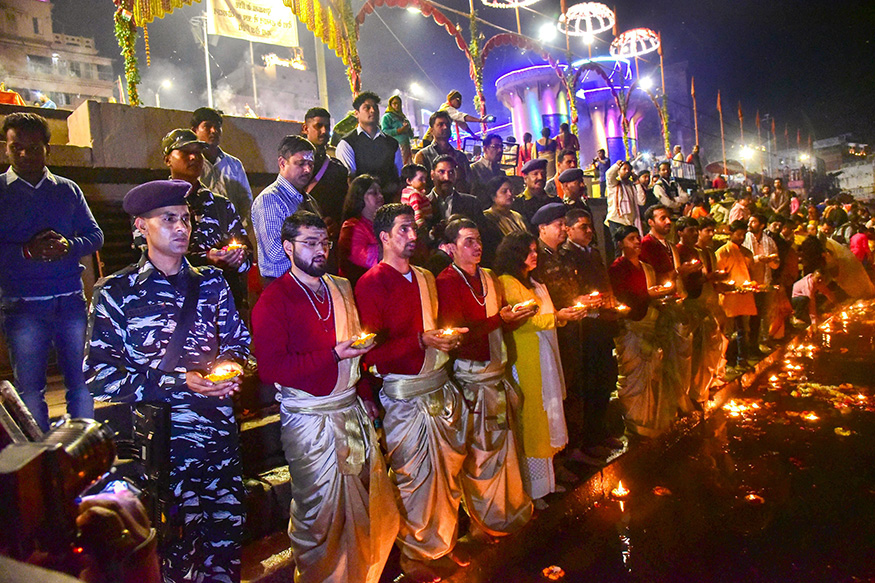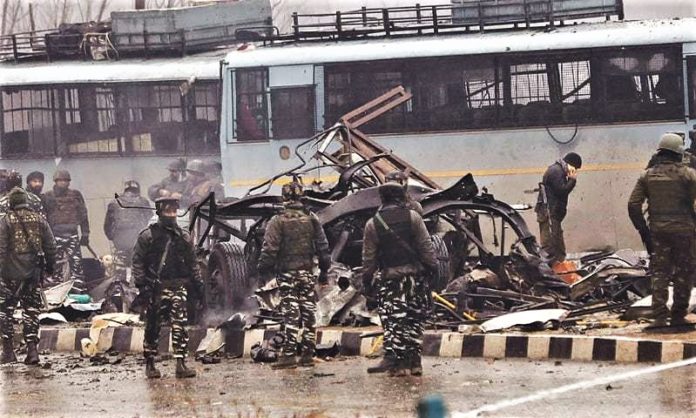The Pulwama attack that killed a little more than forty Indian soldiers, mostly Sikhs, brought the near dormant Kashmir crisis into international focus because of Modi’s so-called “surgical strike” and Pakistan’s measured response. Pakistan’s denial about the Indian claims was supported by the western media relying on satellite imagery. For a change this also swayed international opinion in our favour.
Despite a history of reacting emotionally, in close interaction with the Army high command the government kept emotions in check. Calling for calm Pakistan’s PM Imran Khan noted that there is no such thing as limited war and that it could escalate into a nuclear holocaust. Offered talks to India he also promised cooperation in any investigation into Pulwama. Releasing the captured pilot on the second day after he was downed amply displayed our willingness for peace. Modi did Pakistan a number of favours besides bringing Kashmir into focus, the opposition closed ranks behind the government they normally fight tooth and nail and the international community largely appreciated Pakistani reactions. Our only faux pas was FM Qureshi not attending the OIC Summit, giving away a unique opportunity to rebut India verbatim on a right of reply and promote Pakistan’s stand in the crisis.
Insisting that Kashmir is integral part of India for decades, Indian FM Sushma Swaraj repeated this travesty on the floor of the OIC Conference. She faced embarrassment, mainly within India, when the OIC adopted a strongly worded resolution calling Kashmir disputed and condemning India’s atrocities in Kashmir. However, given Saudi Arabian and UAE sensitivities towards India, the UAE invited Sushma Swaraj to the OIC Conference as an honoured guest, the Resolution did not figure in the OIC Declaration. Pakistan must come to terms with this and not live-in fantasy land about Arab support in anything concerning India. One is hurt that the Arabs are not sensitive to the sufferings of the Kashmiris. On the other hand, Turkey’s support was firm and unequivocal.
Where do we go from here? The Pulwama incident has shown that unsolved problems when suppressed tend to go out of hand and create violence. The world has changed since the Kashmir crisis started in 1947. Globalization has broken up post-war alliances and power balance. The partition of British-India into India and Pakistan was made based on the two-nation theory and nationalism. When markets and financial institutions become global and an international court of law is present, the importance and exclusiveness of national borders becomes less stringent. Accordingly, nationalism has to recede in order to make room for global development.
Pakistan is more sensitive to the issue than India. One central point of nation states is the sanctity of their territory and borders. Pakistani President Musharraf almost managed a solution of the Kashmir problem by accepting the LOC as provisional border (and thus indicating readiness to negotiate Pakistan’s claim to Kashmir) something that is impossible with the hardliner India government firmed by BJP. Pakistan has always displayed a more relaxed attitude towards borders. The brotherly relationship with China was founded when Pakistan agreed to give away a part of its own territory (which admittedly at that time seemed to be of no practical use) “something that India would never have done. The contested border in the west with Afghanistan though kept in place was never a “hard” border and only when our fight against terrorism started for real the army is now fencing it thus making it a “hard” border. Other territorial disputes between India and Pakistan include the Rann of Kutch and Siachen. They cost a lot of sacrifice of men and material which seems justified only if holding on to a hard-core nationalism and nation state. Such nationalism has shown to be a problem in the recent crisis.
The current crisis, which nearly came to a bloody result because of Uncle Modi’s madness, teaches that peace in the neighbourhood is more important than warfare (or near war) that disrupts trade and economy, cancels and delays flights and arouses emotions that are counterproductive. Pakistan is more in an economic crisis than in a political one. All policy that disrupts and disturbs trade and economy needs to be avoided. Pakistan can only occupy its due place in the world if and when it has a well-organised economy that feeds, medicates and educates its population and earns the respect of the global community. While with regard to India one needs two hands to clap, the strong critique of Modi’s conduct in the current crisis within his own country and by people from his own party may indicate moving towards a new chapter after the next election. West Bengal CM Mamta Banerjee has openly condemned Modi’s belligerence and asked for peace. Modi’s election stunt has gone woefully wrong, exposing India militarily and undermining India’ s credibility diplomatically.

The changes that are going on in international relations are such that there is a need to keep an open mind for them. India being invited to attend the OIC summit did hurt but at the same we must accept that India is home to only slightly less Muslims than in Pakistan. They are part of the Muslim Ummah as much as Pakistani Muslims and deserve representation in the worldwide organization. While keeping in mind that the Gulf countries are ambivalent about their attitude towards India because of their burgeoning economic relations which naturally leads to closer political relations, the fact is that India has also to answer to this Islamic forum because of its vendetta against Muslims. OIC has stood staunchly by Pakistan and the Kashmir problem in the very face of Sushma Swaraj’s tirade and insinuations. To make his point our Foreign Minister should have attended.
By not turning the other cheek in the face of Indian aggression but instead giving a measured response Imran Khan’s Govt has gone a long way in displaying maternity. There is another consequence from the Pulwama attack and its aftermath. Terrorism has to be fought at all levels including the political, financial and last but not least the ideological. Our government is in the process of making laws and regulations that will help to proceed if implemented. Launched in 2015 the National Action Plan (NAP) had the same idea in mind but its implementation has been difficult and slow. The problem is that those who have to implement it do not fully back it. Brought up and taught Islamic ideas and militant behaviour, they won’t openly say it but will delay and avoid wherever possible the implementation of the changed policy. Here we have our largest field duty: to change the minds of our people and of our youth in the first place towards patriotic but non-violent values. Some good steps have already been taken through efforts to reintegrate former terrorists into society by re-educating them. But the net has to be much more widely stretched into the schools and universities, the media and social platforms.
The real meaning of Islam is peace in matters of warfare, a decidedly defensive stand can be and should be the ideological basis. This will help to face all aspects of globalization because Islam is global and has to finally be understood as such.




